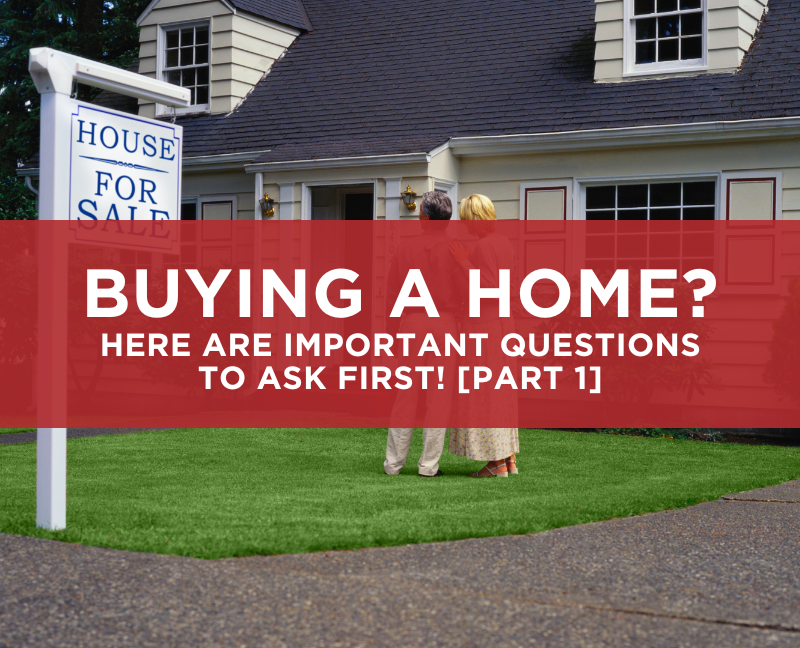Buying a home is all fun and games until you buy a home. It costs a fortune, has too many decisions to be made, and isn't easy to even know what to search for.
So before you start the home-buying process, it's crucial to do research and ask as many questions as you can.
Not sure what questions to ask? Don't worry! We've made it easier for you.
We've put together a list of questions to ask when buying a house to make you feel more at ease about the process.
Questions About Buying A Home
- How Much Is My Housing Budget?
This is the first question about buying a home since having an appropriate house budget avoids overspending on a home. Being saddled with a hefty monthly payment you can barely afford is disastrous and might lead to a huge debt. You must own your house if that happens.
Therefore, when determining your budget, it's practical to limit your mortgage payments to 25% of your monthly income. Thus, your budget will have the capacity for additional financial goals like retirement investing each month.
- What Is The Recommended Amount Of Savings For A Down Payment?
The 100 %-down plan is excellent for home buying as well as buying a house in cash. Aim for a 5–10% down payment on your first property if you intend to get a mortgage. A higher down payment reduces monthly payments, debt, and risk. After waiting a while and saving 20%, you'll avoid private mortgage insurance (PMI), leaving extra monthly money in your budget.
You can consider a 15-year fixed-rate mortgage if you buy a house. Stop taking 30-year loans since they increase debt and interest. Stay clear from adjustable-rate mortgages, FHA loans, and VA loans—they include hidden expenses.
- What Is The Amount Of Closing Costs?
Closing costs are typically 2–5% of your home's buying price. Closing costs for a $300,000 home are expected to be $6,000–15,000. Save enough for closing fees in addition to a down payment.
- Should I Put Money Aside For Moving Costs?
Local movements are less expensive than long-distance moves, varying significantly depending on the distance traveled. Verify your finances to make sure you have enough saved to cover unforeseen expenses.
If you're moving for a job, your new employer may offer a relocation package to cover your costs—64% of employees received relocation reimbursement in 2022.

- Which Way Should I Decorate And Furnish?
This depends on the money you have for furnishing. If you purchased a fully furnished property, you're lucky; if not, you need to plan for decorating and furnishing your home.
This may be as simple as moving your furniture to your new home or buying new items.
When purchasing items, only buy new or old furniture you can afford to pay cash for. Adding consumer debt to a mortgage is one of the most costly home buying mistakes. Decorating one area at a time can help you meet your financial goals.
- What Kind Of Location Is It?
Asking about location is essential. You should know various things about an area before moving in, including:
- The distance from the workplace
- Easy accessibility for shops
- The area's property values
- The distance from the school
- The distance from relatives and friends
Gaining some understanding of these details can assist you in determining whether a particular area or community best suits your needs and objectives.
- How Are The Educational Institutions?
Having kids makes asking about the school districts near your future home important. But if you don’t have kids, a property near good schools may be worth more when you sell your home in the future.
These are just some of the questions you can ask yourself before getting a new home. We have more questions in the next part, so be sure to click this link.

